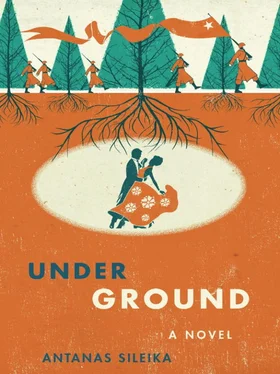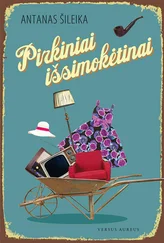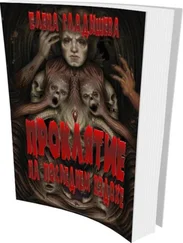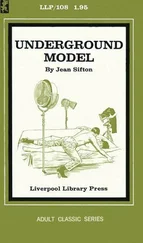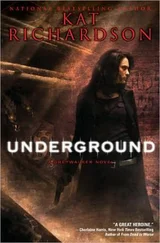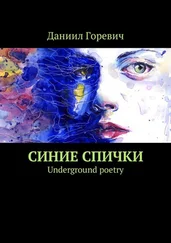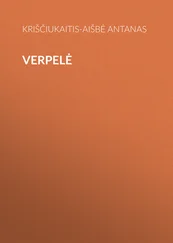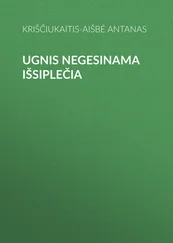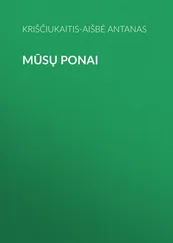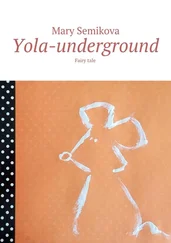Vincentas sensed Lukas’s look. “It’s only a matter of time before they come for me,” he said.
“Oh, I don’t know. The Germans are collapsing. When the war finally ends, they won’t care about young men like us anymore. We’ll be all right.”
“Don’t patronize me.”
Lukas wondered how it was possible for younger brothers to be both needy and touchy at the same time. Vincentas tested his patience.
“What do you want me to say? That you’re doomed? First, I don’t believe it, and second, even if it was true, I wouldn’t say it.”
“Why not?”
“It’s unlucky and does you no good. Didn’t they teach you anything at the seminary? Isn’t despair supposed to be a sin?”
“Yes, it is.”
“So how are you supposed to fight it?”
“With prayer.”
“Well?”
“I’ve been praying for weeks, and it doesn’t seem to do me much good. I wish we could go home. I miss the open fields and the forest. I feel hemmed in here.”
“We could make ourselves some forgeries.”
“It would probably take too long.”
A door banged downstairs and some muffled voices made themselves heard through the walls and doors. Even at a distance, even muffled, the words sounded harsh and brought no liveliness to the building.
“I want to live like Lozorius,” said Vincentas.
“A partisan?”
“They’re free.”
“Winter’s just beginning. What do you think it’s going to be like in that season? Shivering in the cold in some barn.”
“It’s going to be cold here too. There’s no coal. We’re hungry all the time.”
“You were never very good on the farm. You’re an intellectual from the first. You’d make a great priest or a teacher or some kind of administrator. The woodland life of a partisan isn’t for you.”
“You think you know everything, don’t you?”
“I’ve watched you grow up. I was barely out of diapers when I had to take care of you.”
“But I finally did grow up—you don’t need to take care of me any longer. I’m going to find Lozorius and join the partisans.”
“Speak a little more softly, will you?”
“Listen to yourself. You’re behaving like a slave already. We’re afraid here. I’m sick of being afraid.”
“Do you think skulking through the forest is going to be any better?”
“I do.”
Lukas studied Vincentas, whose face was flushed with emotion and whose eyeglasses were in danger of fogging up from his passion. His chest was narrow and his manner nervous. There was no way Lukas could permit his brother to go into the forest alone. He would go with Vincentas, just for a while. Lukas’s studies would have to wait.
LITHUANIA
DECEMBER 1944
ASAD, SINGLE OIL LAMP burned in the window of a farmhouse where a middle-aged man hunched over a newspaper. Sleepless, he flipped the pages, looking for something to distract him.
His right hand was missing the index and middle fingers, and his right shoulder sagged a bit lower than the left, scars of industrial accidents from his other life in America. His wife and three children lay asleep on benches and beds in the combined farm kitchen and parlour, the warmest room now that the December cold had descended on them.
The locals called him the American. Unlike the others who had disappeared into America to make new lives for themselves, he had returned, a migrating bird that lost its way.
Back in the 1920s, as an immigrant to America, he’d worked hard in the Worcester Spinning and Finishing Mill. In those days he suffered from homesickness. He couldn’t get used to the endless noise of the looms, the shouting of foremen and the honking of cars out in the street. The mill was dangerous, taking first one finger and then another. He became slightly deaf and didn’t hear a truck backing into him, breaking his right shoulder. He thought then that he was living in hell and dreamt of returning to the fields of his homeland.
Little by little he put money aside, until he could stand America no more and returned to Lithuania in 1931 to buy almost forty acres of land. He married and had children. His hand and his shoulder could not be healed, but the rest of him felt stronger in compensation. His colour became better from working out of doors and eating well. If anything, he worked harder on the farm than he had back in the U.S.A., but he could see the fruits of his labour, and he imagined his dead parents, a landless farmhand and a maid, looking on approvingly from up in heaven at their landowner son.
If there was such a thing as heaven. Over the last few years, as his luck began to turn for the worse, he had started to doubt there was any divine plan at all.
The Red requisitions were stiff enough in 1940, when farmers were forced to sell produce to the state at very low prices, and then the German requisitions were higher still. And now the farmer had a glimpse of the future, and he didn’t like what he saw.
The numbers the new regime asked of him were frightening: four hundred kilos of meat, so he had to kill two of his cows and thereby fell behind on his milk requisition; one thousand kilos of wheat, although it had been trampled in the fields by both the German and Red armies; a thousand kilos of potatoes, although there had been no farmhands available to dig them out because all the hired hands, the workers, had been drafted or fled to the forests. And maddeningly, the potatoes and wheat that he did manage to deliver were dumped in a yard and left to get wet and rot because there was no room in the warehouse.
The state policies didn’t make sense. He couldn’t understand why they wanted to destroy him and his farm. Wouldn’t these actions destroy the Reds as well? He wished he could go crazy if only to reconcile himself to living in a madhouse. His neighbour, Javas, the one with the big mouth who couldn’t learn to keep his thoughts to himself, was already in jail for failing to meet his quota. Two of the neighbouring farms were empty, gone to seed, one through deportation of the family and the other because the farmer had fled west. The farms were going back to wilderness, back to weeds and grass. Left long enough, they’d go back to the forests they’d been carved from hundreds of years before.
The new rulers were barbers, who sat you down in the chair and promised a trim but kept on clipping and clipping all the way down to the scalp, and when it looked as if there was nothing left to cut, you saw them eyeing the straight razor and you shuddered to think what might be coming next.
Regret kept the American awake while his family slept. His mind kept turning on the mystery of living in the place where he did, a place where history moved backward.
The farmers would be forced into villages again, as they had been in the times of the czar. The state paid no wages at all on collective farms. It was like going back to 1860, before emancipation of the serfs. And these were the “liberators” who had saved them from the Germans. He felt as if he was living on the wrong side of a mirror. Why did the French have all the luck and get the Americans?
This winter night on his farm, he was living in the silence he had missed while on the shop floor in Worcester, Massachusetts. Sitting by the oil lamp, he could fill the silence with his thoughts about how things might have been.
On the edge of the American’s property, on the fringe of a forest, Lukas and Vincentas tried hard not to make noise as they followed the partisan guide in front of them. With each step forward, the crust of snow beneath their feet seemed to squeal like a guard dog whose tail had been stepped on.
The men cut across three kilometres of forest, and then came upon an open field. Light snow began to fall, covering their footprints. They came to a river and waded through the shallowest part, managing to get wet no higher than their knees.
Читать дальше
